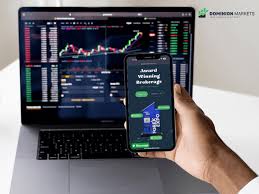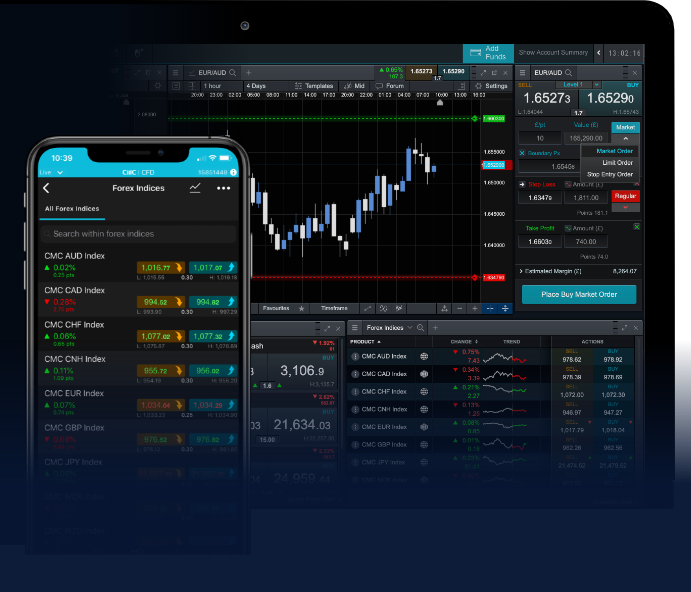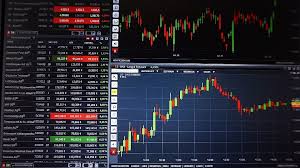
Forex trading has attracted millions of investors worldwide due to its potential for high returns and liquidity. One crucial aspect of getting started in the forex market is understanding trading accounts. This article delves into various types of forex trading accounts, the features they offer, and key considerations for selecting the right account for your trading strategy. For a comprehensive overview of reliable trading platforms, check out forex trading account Trading Brokers.
A forex trading account serves as a medium for traders to execute buy and sell orders on the global currency market. It is essential to choose the right account type to ensure it aligns with your trading goals and strategy. In this guide, we will explore different types of forex trading accounts, key features, and factors to consider when selecting an account that best suits your trading needs.
Types of Forex Trading Accounts
Forex brokers typically offer several different types of trading accounts, catering to various trading styles and levels of experience. Here are the most common types:
1. Standard Account
The standard account is the most widely used account type among forex traders. It usually requires a significantly larger minimum deposit but offers higher leverage and larger contract sizes. A standard lot in forex trading is equivalent to 100,000 units of the base currency, allowing traders to profit more from smaller market movements.
2. Mini Account
Mini accounts are ideal for new traders who wish to start trading with smaller amounts of capital. These accounts generally require a lower minimum deposit and allow traders to buy or sell a mini lot, which is 10,000 units of the base currency. This option provides a more manageable risk for beginners while still allowing them to participate in the forex market.
3. Micro Account
For those who are hesitant to risk large amounts of capital, a micro account offers an even more affordable alternative. With mini accounts requiring a 10,000 unit lot size, micro accounts allow transactions with a lot size of 1,000 units. This type of account is excellent for practicing trading strategies and getting a feel for the market without risking substantial capital.

4. ECN Account
ECN (Electronic Communication Network) accounts are designed for traders who prefer to trade directly with other market participants, including banks and other traders, rather than going through a broker. ECN accounts typically offer lower spreads and no commission fees, making it an attractive option for high-frequency traders or scalpers. However, these accounts may require a higher minimum deposit.
5. Islamic Account
Islamic accounts adhere to Sharia law and do not charge or pay interest on trades. These accounts are important for traders of the Muslim faith who wish to engage in forex trading without violating religious principles. Brokers often offer Islamic versions of their standard and ECN accounts to accommodate these traders.
Features to Look for in a Forex Trading Account
When selecting a forex trading account, several key features can significantly impact your trading experience. Here are some essential factors to consider:
1. Leverage
Leverage allows traders to control larger positions with a smaller amount of capital. It is essential to understand the leverage available on your chosen account and use it wisely. Higher leverage can result in larger profits, but it also increases the risk of substantial losses.
2. Spreads and Commissions
Spreads represent the difference between the bid and ask price of a currency pair and are a crucial cost associated with forex trading. Consider the spreads offered by the broker, as lower spreads can increase your overall profitability. Additionally, some brokers charge commissions on trades, so weigh these costs when selecting an account.

3. Trading Platforms
A user-friendly and robust trading platform is crucial for executing trades efficiently. Investigate the platforms offered by the broker and ensure they provide the tools and features you require for successful trading.
4. Customer Support
Reliable customer support is vital, especially for new traders who may need assistance. Ensure your broker offers accessible support through multiple channels and has a good reputation for resolving issues promptly.
5. Deposit and Withdrawal Options
A range of deposit and withdrawal options make it easier to fund your account and withdraw your profits. Look for brokers that offer various methods, including bank transfers, credit cards, and e-wallet solutions.
How to Open a Forex Trading Account
Opening a forex trading account is generally a straightforward process. The steps typically involve:
- Choosing a Broker: Therefore, you should research and select a reputable broker based on the factors discussed above.
- Completing the Application: Fill out the online application form. You will need to provide personal information, including your name, address, and experience level in trading.
- Submitting Verification Documents: Most brokers require identification and proof of address. This may include a government-issued ID and utility bills.
- Funding Your Account: Once your account is approved, you can fund it using your selected payment method.
- Downloading the Trading Platform: Familiarize yourself with the trading platform before placing your first trade.
Conclusion
Selecting the right forex trading account is crucial for traders at any experience level. By understanding the different types of accounts available, key features to consider, and the process for opening an account, you can set yourself up for success in the dynamic world of forex trading. Remember to choose a broker that aligns with your trading goals, and don't hesitate to seek support and resources as you navigate the forex landscape.

